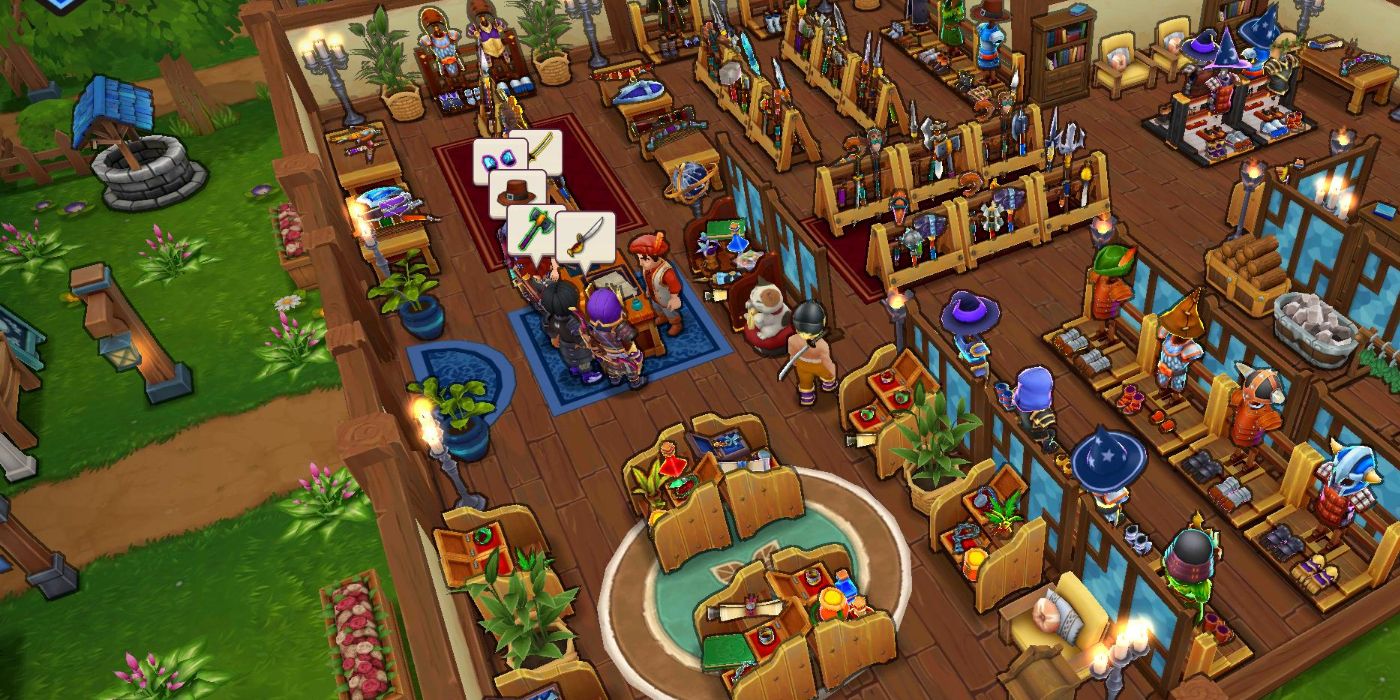There’s a pervasive stigma around mobile games. The entire mobile gaming market has been viewed in a less-than-positive light for many years now since many so-called ‘free’ games are little more than free trials trying to hook addictive personalities into a never-ending loop of grinding and spending. What’s particularly insidious about this market isn’t just the fact that it preys on children and even their parents, it’s the fact that these systems are slowly but surely making their way into non-mobile markets. Ever since mobile games began to earn millions more than their triple-A contemporaries – and for relatively small budgets by comparison – producers started to eye more lucrative money-making opportunities. Some simply employed the randomized systems (such as loot boxes), others developed their entire games around unfair advantages given to the eagerly paying.
Now, just about every ‘free’ game is eyeing your wallet before your attention. The burgeoning free-game market is so influential that many games, to a certain extent, can’t resist but employing the controversial tactics that should be reprimanded in any title, let alone a full-priced one. So Shop Titans, while by no means the most offensive game to come out of the mobile sphere, is nothing short of obnoxious in its greed and tedium. To anyone who has clicked that download button on one of the countless free games on their iPhone or Android device will most likely be right at home with Shop Titans. It’s not trying to be too different. It’s for all ages, since everyone, no matter what age, can pay if pushed into the repetitive, dopamine-stoked loops of the polished core systems.
The aesthetic, a pleasant amalgamation of every popular style seen in the mobile market over the last half-decade (Clash of Clans comes to mind as the originator), acts as a kaleidoscope for all the different currencies, upgrades, downgrades, promotions, events, and skins. The cartoony, pseudo-anime half-chibi characters mix well-enough with the generic town the player is greeted with. The interface is large and perfect for your thumbs and not so much your mouse. The screen is littered with advertisements and, while the game has yet to even release at the time of these playing sessions, there are already prominent logos on all the real-money currencies advertising ‘popular’ bundles.
Shop Titans itself is a management game akin to the Tycoon franchise. Its design is, in one word, simple. The player is dropped into a fantastical world as a shop-keeper renovating a decrepit store. It’s a neat idea for the genre and players are taught how to craft items, which get automatically put onto racks they must buy and place. The player is also taught about quests that can be completed by recruited adventurers. There are also rudimentary multiplayer systems present with guilds. All of these mechanics are quickly introduced by the many characters that both assist the player in crafting gear and advertise the best gem deals. Gems, to no one’s surprise, are the real-money currency the player can use to expedite every process. Similar to virtually every other free building game, building something costs precious, expensive resources and time. Time being real-time. It starts out fast, with upgrades as well as armor and weapons to sell taking no more than ten to thirty seconds to create. However, as one progresses further and the game’s true nature begins to reveal itself, these times grossly inflate, like a balloon filled with greed and poor business practices. They continue to inflate, and suddenly, minutes or even hours go by without any progress being made.
If that’s not enough, the player can’t even craft more than two items at once. If one wants to craft more than one item (which is mostly just clicking an icon and waiting), they must buy that ability with, yes, you guessed it: gems. And while the first two upgrades are definitely affordable with the meager amount given by the game’s arduous leveling and achievement systems, these numbers inflate as well. The sad irony here is that while the store expands, your ability to create gear shrinks… if you don’t plan to pay. And pay you will. If you want to make any kind of meaningful progress in Shop Titans, expect to be dishing out far more than any full-priced game. In fact, fully customizing your shop with plants, carpets, and so on costs quite a bit. These seemingly aesthetic preferences do actually add non-aesthetic benefits to the store, such as providing the player with extra opportunities to sell.
On that topic, a free player can only play the game a certain amount every day before running out of energy, another currency that depletes as the game is played. To no one’s surprise, if more money is spent on Shop Titans, then more energy is given, meaning that players who invest tens or even hundreds of dollars into this title will be able to progress faster, play more, and not experience any of the purposefully crafted tedium that has become so prevalent in mobile gaming. Thing is, Shop Titans, while initially releasing on mobile, isn’t just a mobile game anymore. This is a PC release that limits player at every turn, unless they pay.
There could be a lot of potential in quality of titles topping the mobile market. With the Nintendo Switch selling like hotcakes (nearly sold out almost everywhere), gaming on the go is as relevant as it is sought after. Phones could be a secondary, great platform for this. Unfortunately, this market has been infested with too many grind-based, limited-by-real-money-purchases titles like Shop Titans, which fails to make itself fit for PC.
Shop Titans is available on iPhone and Android devices and releases for PC on May 5, 2020.
